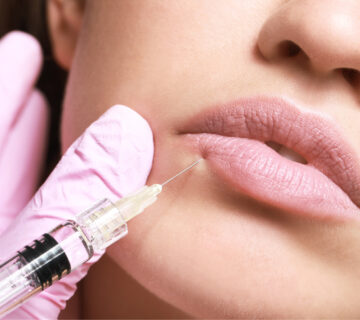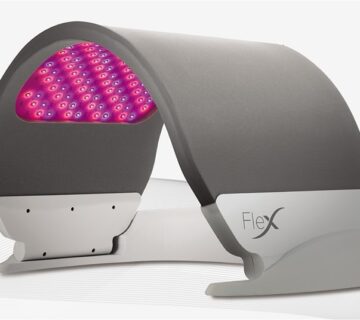When it comes to our skin, it’s essential to understand the role free radicals play … but what are they? As a dermatology expert I shed light on this issue.
Let’s demystify these microscopic troublemakers. A simple way of doing this is to think of free radicals as tiny mischief-makers with unpaired electrons that steal electrons from nearby molecules to regain stability. This electron-snatching spree sets off a chain reaction, causing cellular damage and the potential cascade of skin issues.
Knowing where these troublemakers originate is crucial to fortifying our skin’s defences. UV radiation, pollution, stress and even our diet contribute to the creation of free radicals. Sun exposure, a major culprit, not only directly generates free radicals but also weakens the skin’s natural defence mechanisms. Pollution, an inescapable facet of modern life, releases particulate matter that wreaks havoc on our complexion.
So now you understand that it’s a constant battle, armed with knowledge, we can shield our skin from these assailants.
 Cellular Battlefront: Damage and Ageing
Cellular Battlefront: Damage and Ageing
As free radicals engage in snatching electrons, cellular damage unfolds and this takes a toll on our skin’s health. This damage manifests in wrinkles, fine lines and uneven tone. Essentially, it’s a silent contributor to premature ageing. Free radicals are also linked to the breakdown of collagen and elastin, essential for maintaining firmness and elasticity. The connection between free radicals and ageing becomes more apparent as these structures deteriorate.
Antioxidants emerge as unsung heroes. These compounds neutralise free radicals by donating the electrons they crave, interrupting the destructive chain reaction. Common antioxidants include vitamins C and E, beta-carotene, selenium, and various phytochemicals found in fruits, vegetables and plant-based foods. A balanced and varied diet supports the body’s defence while skincare products act as formidable shields, defending against the relentless assault.
Stress-Induced Oxidative Stress
It’s also important to understand the connections between the the mind and skin, and this is where stress comes into play. Stress generates its own army of free radicals as it activates the body’s “fight or flight” response. This in turn, triggers the release of cortisol. High levels of this hormone, especially over an extended period, can negatively impact mitochondrial function and inflammation. Feeling anxious or under pressure can also deplete our antioxidant defences, making cells more vulnerable to oxidative damage.
While short-term stress responses are natural, chronic levels can lead to persistent oxidative stress. Mindfulness practices, regular exercise and a balanced diet rich in antioxidants can help mitigate the impact.
Consult A Skincare Expert
A personalised approach to skincare is essential, recognising that each person’s complexion tells a unique story. A tailored routine, enriched with antioxidants, can significantly enhance its resilience and vitality. Consulting with a dermatologist – like the team at Faciem – means we can can work out a bespoke regimen that addresses individual concerns. By affectively tackling your specific issues, we are able to empower clients to become active participants in their skin’s health journey.
In parting, I leave you with a call to action: embrace the knowledge, nurture your complexion and understand that the story of your skin is uniquely yours. With the right tools and insights, we can work together to script a tale of resilience, vibrancy and timeless beauty. Expert guidance is your key towards radiant skin.
Dr Anamica xx



 Cellular Battlefront: Damage and Ageing
Cellular Battlefront: Damage and Ageing

